
Earl of Erroll is a title in the Peerage of Scotland. It was created in 1453 for Sir William Hay. The subsidiary titles held by the Earl of Erroll are Lord Hay and Lord Slains (1452), both in the Peerage of Scotland. The Earls of Erroll also hold the hereditary office of Lord High Constable of Scotland. The office was once associated with great power. The Earls of Erroll hold the hereditary title of Chief of Clan Hay.
Alice "Kiki" Preston was an American socialite, a member of the Happy Valley set, and the alleged mother of a child born out of wedlock with Prince George, Duke of Kent, fourth son of King George V.

Michael James Radford is an English film director and screenwriter. He began his career as a documentary director and television comedy writer before transitioning into features in the early 1980s.
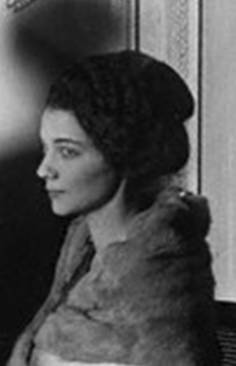
Alice de Janzé, also known as the Countess de Janzé during her first marriage and as Alice de Trafford during her second marriage, was an American heiress who spent years in Kenya as a member of the Happy Valley set of colonials. She was connected with several scandals, including the attempted murder of her lover in 1927, and the 1941 murder of the 22nd Earl of Erroll in Kenya. Her life was marked by promiscuity, drug abuse and several suicide attempts.

Sir Henry John Delves Broughton, 11th Baronet, DL, was a British baronet who is chiefly known for standing trial for the murder of the 22nd Earl of Erroll. The event was the basis of the film White Mischief and of the British television drama The Happy Valley, both from 1987.
The Happy Valley is a British television drama, first shown on BBC1 on 6 September 1987 in the Sunday Premiere strand. It was written by David Reid, directed by Ross Devenish, and produced by Cedric Messina. It stars Holly Aird as Juanita Carberry, Michael Byrne as her violent father, and Denholm Elliott as Jock Delves Broughton.

White people in Kenya or White Kenyans are those born in or resident in Kenya who descend from Europeans and/or identify themselves as White. There is currently a minor but relatively prominent White community in Kenya, mainly descended from British, but also to a lesser extent Italian and Greek, migrants dating from the colonial period.

Errol Trzebinski, is a British writer of books on the Happy Valley set of colonial Kenya.

The Happy Valley set was a group of mostly British and Anglo-Irish aristocrats and adventurers who settled in the "Happy Valley" region of the Wanjohi Valley, near the Aberdare mountain range, in colonial Kenya between the 1920s and the 1940s. During the 1930s, the group became infamous for its hedonistic, decadent lifestyles and exploits amid reports of drug use and sexual promiscuity.

Josslyn Victor Hay, 22nd Earl of Erroll was a British peer and a member of the British Union of Fascists, known for the unsolved case surrounding his murder and the sensation it caused during wartime in Britain.
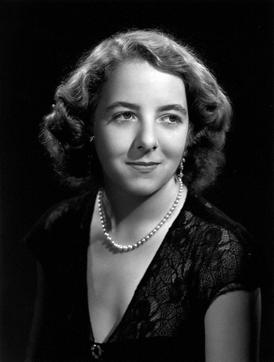
Diana Denyse Hay, 23rd Countess of Erroll was a British noblewoman.
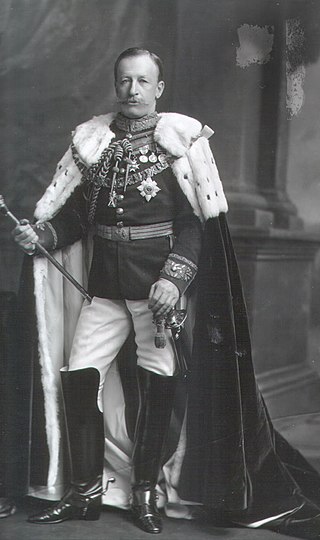
Charles Gore Hay, 20th Earl of Erroll, KT, CB, styled Lord Hay until 1891, was a Scottish soldier and Conservative politician.
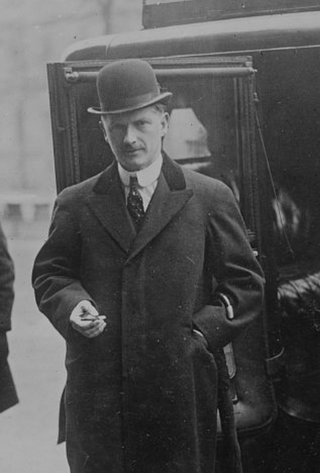
Victor Alexander Sereld Hay, 21st Earl of Erroll and 4th Baron Kilmarnock, KCMG, styled Lord Kilmarnock from 1891 to 1927, was a British diplomat, a writer and briefly a member of the House of Lords, who was "noted for his tact and charm."
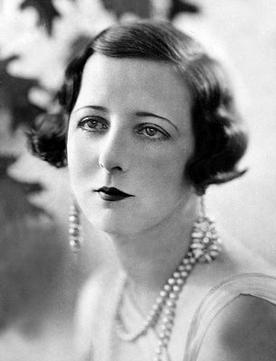
Lady Myra Idina Sackville was an English aristocrat and member of the Happy Valley set. Her behaviour and lifestyle scandalised upper class society.
James Fox is a British journalist best known for his book, White Mischief, and for co-authoring Life, the best-selling memoir of Rolling Stones' guitarist Keith Richards.
White Mischief may refer to:
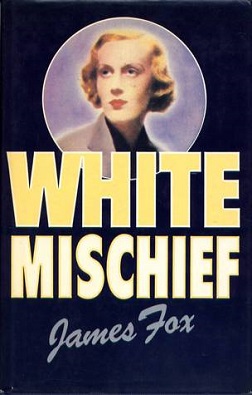
White Mischief is a book by British journalist James Fox, first published in hardback 1982 by Jonathan Cape and in paperback in 1984 by Penguin. It is an account of the unsolved murder in 1941 of Josslyn Hay, the Earl of Erroll, a British expatriate in Kenya. The title is a pun on the title of Evelyn Waugh's novel Black Mischief (1932). The book was adapted as a film in 1987.
Gwladys Helen Cholmondeley, Baroness Delamere, CBE, formerly Lady Markham, was the first female Mayor of Nairobi from 1938 to 1940. She was awarded her CBE in 1941 for public services in Kenya. In March 1941 she gave evidence at the trial in Kenya of Sir Henry John Delves Broughton for the murder of Josslyn Hay, 22nd Earl of Erroll. She died on 22 February 1943 and was buried at Soysambu.
Sir Walter Harragin CMG QC was a British colonial barrister, judge and administrator.

Diana Caldwell was an English society femme fatale figure who first appeared on the London scene between the wars. She is best known for her part in the murder of Lord Erroll in 1941, dramatised in the 1987 film White Mischief played by Greta Scacchi.














